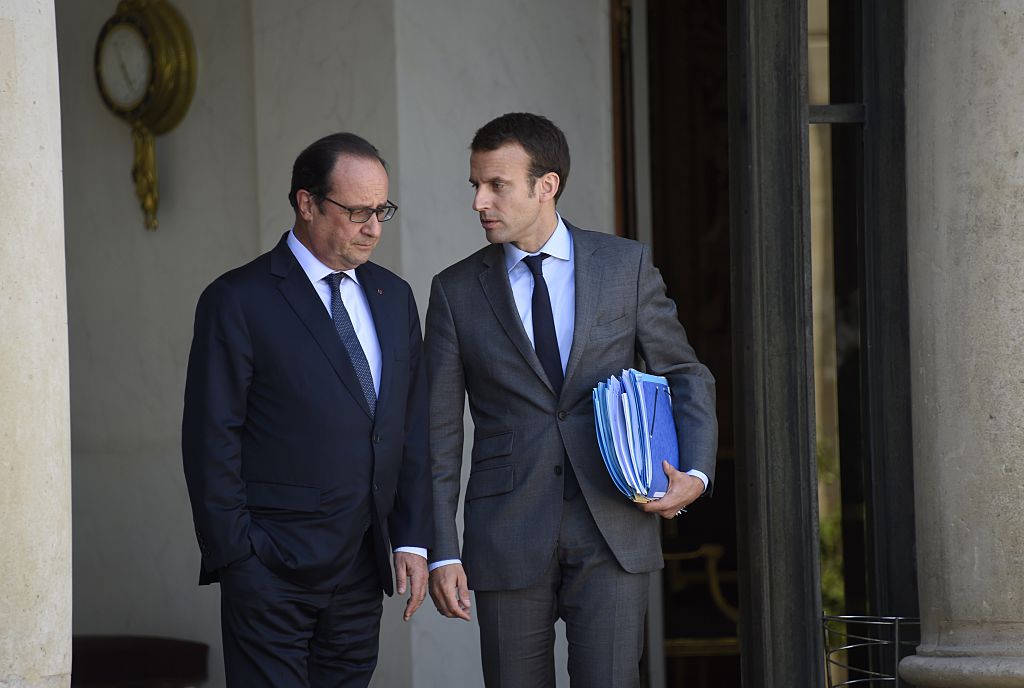In 2002, I befriended an old Frenchman called Andre. He had been a resistant, one of the first, and when the SAS parachuted into the wooded, rolling countryside of the Morvan in central France, he was there to greet them. For three months in the summer of 1944, the SAS and the Resistance waged a guerrilla war. It was a brutal campaign. Andre took me to the church tower from where the Germans had hurled the village priest, and he showed me the forest clearing where his Resistance group had shot a 15-year-old boy for betraying one of their number to the Nazis. Andre also told me about his acquaintanceship with François Mitterrand. They first met shortly after the war when Mitterrand was elected Andre’s MP having artfully wooed supporters from the left and the right. At first he admired Mitterrand, ignoring those who questioned the authenticity of his war record with the Resistance. But as the years passed, Andre watched in disgust as Mitterrand moved towards the left, shedding his principles one by one in his craven pursuit of power. Andre never forgave Mitterrand, nor any of the established political class. At the 2002 election he voted for the National Front because, in his words, only they cared about France.
Andre died in 2015, and I’m relieved he’s not around to witness the sordidness of what his beloved France has witnessed in recent weeks, of politicians slithering towards the party they believe will offer them a chance of power after next month’s presidential election. The latest opportunist is Manuel Valls, who until December was the Socialist prime minister. Valls last week pledged his allegiance to Emmanuel Macron’s En Marche! party two months after he lost the Socialist primary to Benoît Hamon.
‘Pitiful’, ‘shameful’, and ‘dishonourable’ were some of the words hurled at Valls by the furious Socialists, who have already seen a spate of high-profile defections to En Marche!, including defence minister Jean-Yves Le Drian and Barbara Pompili, minister in charge of biodiversity.
They’re deserting because they have their eye on June’s legislative elections when voters select the 577 politicians to sit in the National Assembly. Macron’s party has no elected politicians so should he become president he’ll need to field strong candidates in a bid to secure a majority, and a report last week said the leader of En Marche! has so far received 14,000 applications to stand.
The Socialists have no chance of winning the presidency so hence the attraction of En Marche! to opportunists like Valls, Le Drian and Pompili. There is also a smattering of conservative politicians making overtures to Macron, the latest being Christian Estrosi, the president of the Provence- Alpes-Côte d’Azur region and a confidant of Nicolas Sarkozy, fuelling speculation that the former president may try and worm his way back into front-line politics.
But it’s the Socialist defections that are creating a dilemma for Macron. On the one hand he needs the support of experienced ‘heavyweights’ to convince voters that he and his party has the gravitas to govern. But the more Socialists who join, the greater the opportunity for his enemies to claim that, far from being a fresh face in charge of a new party, Macron is simply a continuation of François Hollande’s government. As François Fillon joked to his supporters at a rally in Corsica at the weekend they should rename the leader of En Marche! ‘Emmanuel Hollande’.
Former allies have started quitting En Marche!, disillusioned with its evolution. ‘The movement has become a recycling process for all those who govern us and who are trying to save themselves,’ said Général Bertrand Soubelet, one of France’s top security experts, who left after two months.
There is a school of thought in France that En Marche! originated in the corridors of the Elysees Palace, that Macron – who served as Economy minister between 2014 and 2016 – was identified early on by Hollande as the man best placed to succeed him. But he needed to be rebranded and resold to the French. So they concocted En Marche!
That’s what Le Figaro believes, declaring on the front of its weekend magazine: ‘The Great Manoeuvre: how Hollande secretly spurs on Macron’. The newspaper reminded its readers what Hollande remarked to two journalists from Le Monde in 2014: ‘He’s from the left, Macron, he’s always been on the left’.
Furthermore, many conservatives believe Hollande had a hand in destabilising François Fillon’s presidential bid with the ‘fictitious jobs’ furore. The president’s office rejects the accusations but there’s little doubt he’s enjoyed seeing his long-time foe flounder. As have others, like Valls, who assume that Fillon’s difficulties will propel Macron to the presidency.
Mitterrand’s long and painful quest for power finally paid off in 1981 when he became president, having undergone a makeover before he hit the campaign trail. ‘No one will listen to what you say about solidarity if you dress like a banker,’ his publicist told him. ‘Dress to the ‘left’.’
Mitterrand was adept throughout his life at using his equivocation as a powerful weapon, modelling his talent on one of his political influences, Cardinal de Retz, well-known for his intrigue at the court of Louis XIV. ‘If you set aside ambiguity’, wrote the cardinal, ‘it is always to your own detriment’. Macron, with his talk of being ‘neither left nor right’, hopes his ambiguity will also win him the presidency.
Gavin Mortimer is the author of Stirling Men’s: the history of the SAS in WW2







Comments